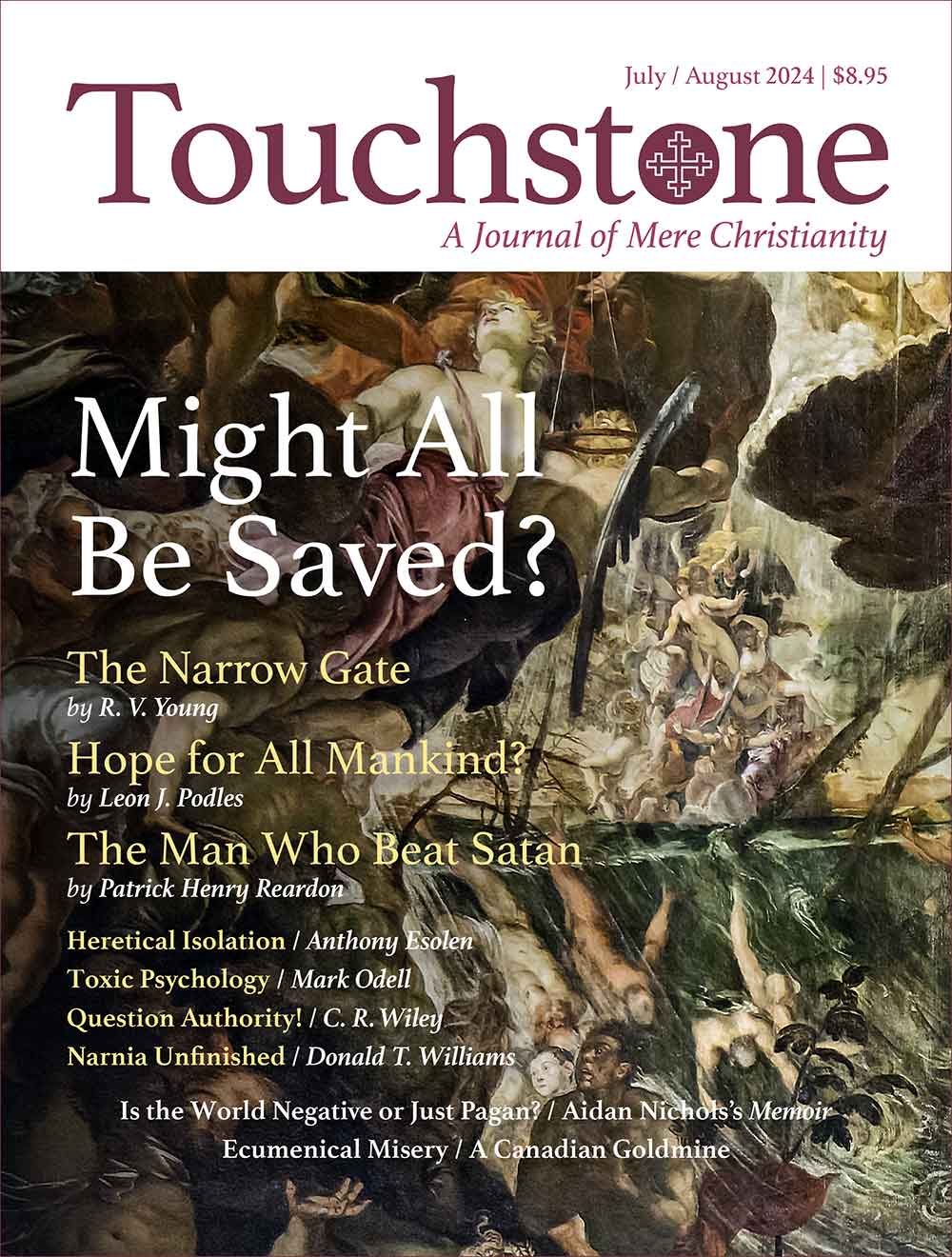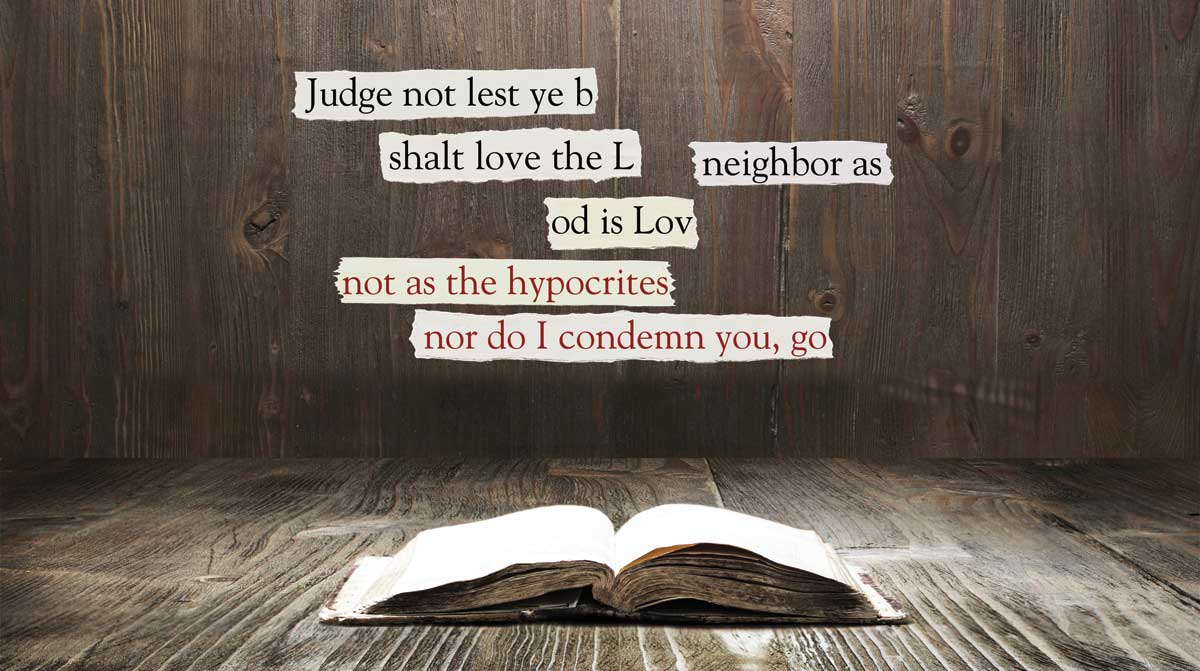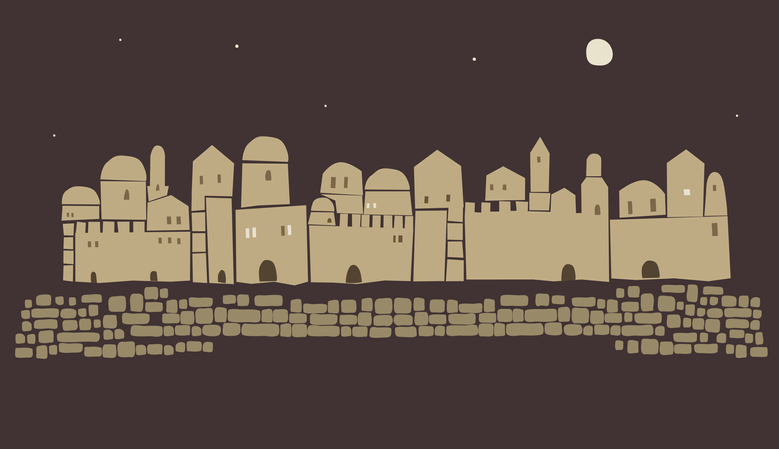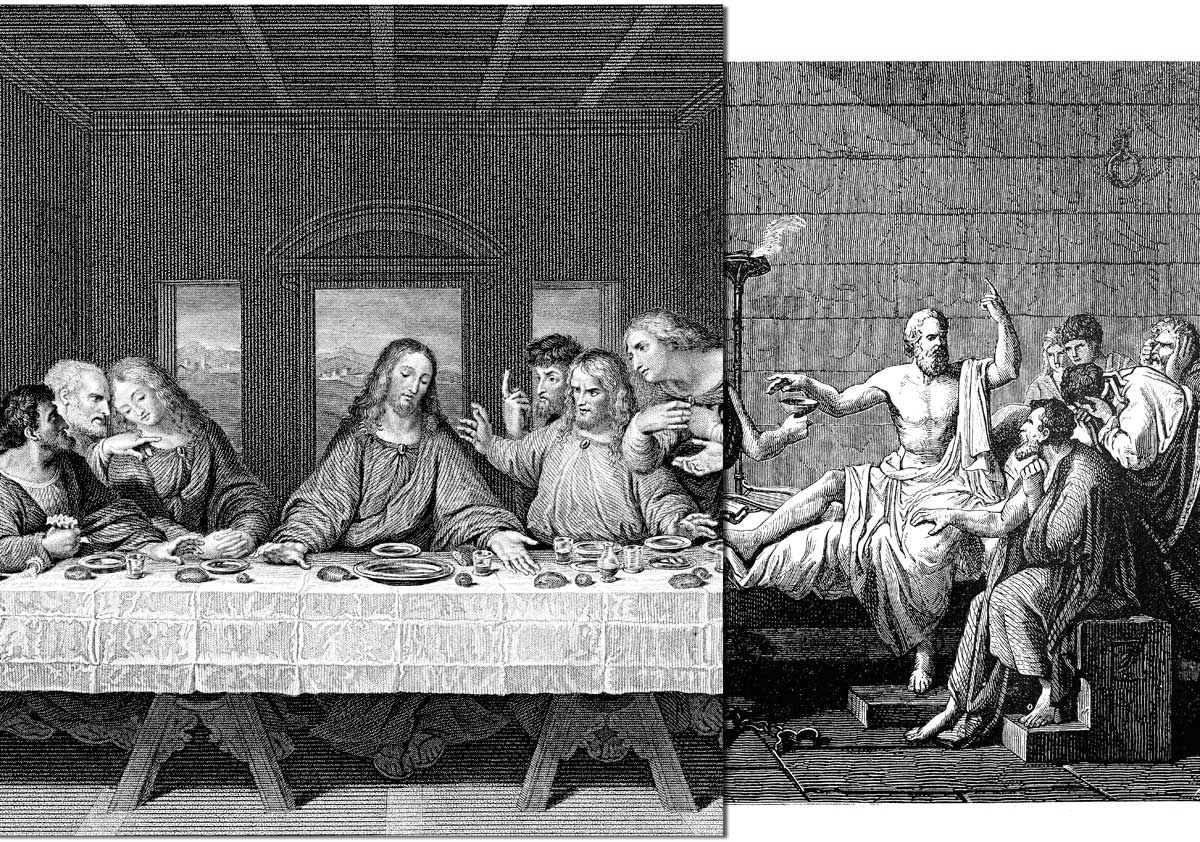Soil for the Soul
We Must Restore Wasted Humanity
By now, every serious Christian should be aware that young people in great numbers are falling away from the faith, despite having been trained in it from their infancy, despite being taught at home, and despite the spate of apologetic books that Christians have written, often quite well and persuasively, to defend the faith against the peculiar inanities of our time. My impression is that people who lose the faith entirely will say they have changed their minds or opened their hearts, when in truth they have but put their consciences to sleep in order to undo their trousers. In any case, the nature of “social” media encourages these would-be rebels in expressions of contempt and hatred, while people who still have the name of Christ on their lips are not behindhand in slandering one another and taking delight in exposing one another’s follies and crimes, whether real or supposed or manufactured in the mill of the accuser’s imagination.
The pressing question is what to do about it.
I shall have one suggestion here. It is to build soil: to till and nourish what is most genuinely human in the young person’s soul, aware that we are working in a bad time and that all the habits and the powers about us are aimed at leaching away that human substrate. The desiccated man of our time does not join a church—nor does he join a bowling league. He does not sing hymns, but you will not catch him singing love songs, either. He does not long for God, because there is no Sehnsucht in him at all; he is sated with trivialities. He does not turn his attention to the divine, because he has no attention to turn.
Celebrating a Feast
Recall a scene from what once was human life. Jesus went up to Jerusalem every year with his family to celebrate the Passover feast. They must have been a small crowd as they did so, taking their place among many other small crowds. After all, it took Mary and Joseph some time to ascertain, on the way back, that Jesus was not with them. For people had continually to do with to one another. The boy had cousins to play with, aunts and uncles to ask for a drink or a bunch of dates, neighbors to talk to.
On that way from Nazareth to Jerusalem and back, with everyone making a fine holiday of it even as it got to their weary bones, Jesus was a member of a people, a people united by their worship of God, surviving in spite of war and destruction and captivity. The first Passover had occurred more than a thousand years before, and still they remembered it, and they celebrated it even in the midst of their Roman overlords. They sang hymns, and, as Augustine would later say, singing is what the lover does. They worshiped in the Temple, with due ceremony and that solemnity which is the quiet and patient sister of joy. But they were out of doors almost all the time, especially when they traveled, and then their companions were the hills and rocks and trees of the created world, the fresh gullies of spring, the chattering birds, and the skies above.
These were human beings doing that most human of things, that which most energetically turns our hearts toward God: they were celebrating a feast.
I am not making them out to be angels. They were not. I am making them out to be men, good men or bad as the case might be, but men. And here is the thing we must acknowledge no matter how much it costs us to do so: the whole of the world about us now is ranged against more than our children’s faith, and our own faith, too. It is ranged against humanity.
Loss & Lassitude
I am not speaking solely about evil and destructive ideologies. I am speaking about the intravenous drip of hell that comes from the screen, and about the screen itself, turning us all into cave-dwelling idiots, and making it less and less likely that our children will be able to walk in the woods or read a book, let alone sing and pray with other people. I am speaking about the acid bath of political action and political wheel-spinning and political hatreds, the everlasting elections, the fungal spread of the state and therefore of political anxiety into every minute of the day—into the workplace, into the school, into the kitchen, into the inner sanctum of the soul.
I am speaking of the loss of sacred time, of a week of Mondays and maybe a Saturday to prepare for more Mondays. I am speaking of the strangling of the imagination, so that the human stories that once could draw you in now seem too quiet, too thoughtful; there must be noise, auditory and otherwise. I am speaking of a public space dominated not by places of worship but by overpriced coffee shops, endless office buildings, subdivisions without clear organization and without a trace of genuine neighborhood. I am speaking about the lassitude of men and women young in years but old in disappointments, who have been told in a multitude of ways, from the time they could first toddle about, that married love is a peripheral thing and sex is for recreation; the real measure of your dignity lies in how deeply you can go into debt and still manage to avoid bankruptcy.
Treasures Like Mary’s
Caesar has helped to foster this dreary worldliness. It is to Caesar’s advantage. But we Christians have cooperated.
Anthony Esolen is Distinguished Professor of Humanities at Thales College and the author of over 30 books, including Real Music: A Guide to the Timeless Hymns of the Church (Tan, with a CD), Out of the Ashes: Rebuilding American Culture (Regnery), and The Hundredfold: Songs for the Lord (Ignatius). He has also translated Dante’s Divine Comedy (Random House) and, with his wife Debra, publishes the web magazine Word and Song (anthonyesolen.substack.com). He is a senior editor of Touchstone.
subscription options
Order
Print/Online Subscription

Get six issues (one year) of Touchstone PLUS full online access including pdf downloads for only $39.95. That's only $3.34 per month!
Order
Online Only
Subscription

Get a one-year full-access subscription to the Touchstone online archives for only $19.95. That's only $1.66 per month!
bulk subscriptions
Order Touchstone subscriptions in bulk and save $10 per sub! Each subscription includes 6 issues of Touchstone plus full online access to touchstonemag.com—including archives, videos, and pdf downloads of recent issues for only $29.95 each! Great for churches or study groups.
Transactions will be processed on a secure server.
more on culture from the online archives
more from the online archives
calling all readers
Please Donate
"There are magazines worth reading but few worth saving . . . Touchstone is just such a magazine."
—Alice von Hildebrand
"Here we do not concede one square millimeter of territory to falsehood, folly, contemporary sentimentality, or fashion. We speak the truth, and let God be our judge. . . . Touchstone is the one committedly Christian conservative journal."
—Anthony Esolen, Touchstone senior editor












